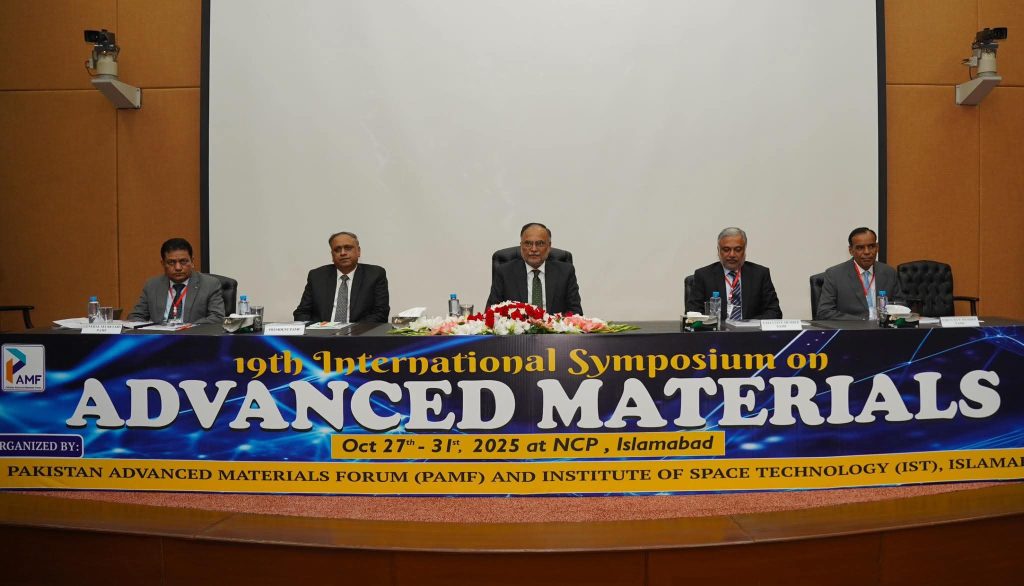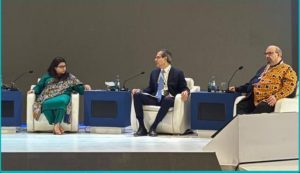Pakistan Hosts Premier Symposium on Advanced Materials and Industrial Innovation

Tanveer Ahmed :
The government has decided to establish National Centre for Advance Materials named after Dr Abdul Qadeer Khan, in the Quaid-i-Azam University.
The National Centre for Advanced Materials will be dedicated to specialised research in aerospace, energy, defence and other strategic industries.
The new centre will promote applied research, technical training and international collaboration.
The announcement was made by Planning Minister Ahsan Iqbal on Monday at the inaugural ceremony of the 19th International Symposium on Advanced Materials (ISAM-2025) at the National Centre for Physics (NCP) in Islamabad.
The symposium is being held under the auspices of the Pakistan Advanced Materials Forum (PAMF).
Ahsan Iqbal lauded the efforts of late scientist Dr Khan for his all-out contributions in making this country self-reliant in many fields.
The five-day international symposium has brought together leading scientists, engineers and researchers from around the world to discuss breakthroughs in material science and engineering.https
The minister emphasised that developing countries like Pakistan must not remain on the sidelines of scientific advancement. “Science and technology are no longer optional — they are a strategic necessity,” he said, adding that “for more than 30 years, this symposium has connected experts from across the world, promoted cutting-edge research, and helped build lasting scientific partnerships.”
Highlighting the critical importance of advanced materials, the minister said materials science lies at the heart of global innovation, driving progress in clean energy, healthcare, environmental sustainability, and defence.
He noted the growing convergence of disciplines such as physics, chemistry, nanotechnology and artificial intelligence in developing next-generation materials that are stronger, lighter, smarter, and more sustainable.
While speaking at the inaugural ceremony, President PAMF Dr Rizwan Baig said materials lie at the core of every major innovation — from clean energy to quantum computing, from advanced healthcare to next-generation mobility.
He noted that since its inception in 1989, ISAM has been held every two years without interruption, reflecting the deep commitment of Pakistan’s scientific community. He said materials science spans an incredible range of applications — from microchips to megastructures, polymers to smart textiles, and superconductors to bio-compatible implants — requiring interdisciplinary collaboration among engineers, chemists, physicists, and computer scientists.
The PAMF president also highlighted the growing integration of Artificial Intelligence (AI) in materials research.
“AI allows us to analyse vast datasets, predict material properties, and discover new compounds at record speed,” Dr Baig explained. He added that this powerful synergy between AI and materials is opening new possibilities across industries such as aerospace, energy, and biomedicine. This year’s symposium features over 20 international speakers from Russia, Malaysia, China, Indonesia, Turkey, and Norway, with more than 60 oral and 40 poster presentations scheduled across five days.
ISAM-2025 will explore frontier areas including AI-driven materials research, additive manufacturing, and advanced materials characterisation.
Alongside the symposium, PAMF and IST are also hosting a Technology Exhibition, RISE 2025, showcasing cutting-edge innovations and linking researchers with industry partners and investors, to promote commercialisation and industrial linkages.





